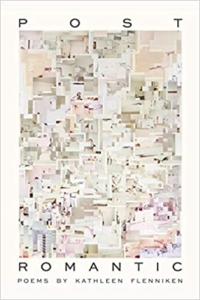
It has been my great pleasure this weekend to reread Kathleen Flenniken‘s Post Romantic (University of Washington Press, 2020), and now to share it with you.
Kathleen Flenniken served as Washington State Poet Laureate from 2012-2014 and is a Washington State Book Award recipient. Her previous books are Famous, which won the 2005 Prairie Schooner Poetry Book Prize (University of Nebraska Press, 2006); and Plume, which was selected by Linda Bierds for The Pacific Northwest Poetry Series (University of Washington Press, 2012). Visit the books page at her website to learn more.
In preparation for this blogpost, I emailed Kathleen with some questions about her process in pulling together a book of poems. The two main subjects—marriage and America, as she says below—are both capacious enough to hold multiple threads (parents, children, art, reading, travel, environmental disasters). It made me think of Zorba the Greek’s “the full catastrophe”—it’s all here. “I’m trying to marry then and now,” she writes in one poem, “there are too many coincidences / to explain,” in another. Or, in the final poem: “As though we could string pearls into a necklace // of only good moments” (“Lilacs”).
I first asked, as I have several other poets this month, if she begins by conceptualizing the book, perhaps with a theme or title, or does it begin with individual poems that need a home?
My second book Plume was built around a single but also arcane subject—the Hanford Nuclear Site—so it was necessary to think of those poems as a collection as I was writing them. I thought, oh, I’ve graduated, that’s the way it will be from now on!
I had an idea to braid poems about my difficult relationship with America with poems about a long marriage, and I chose for my new project the title, “Post Romantic.” But in practice, I couldn’t seem to write as many America poems as marriage and family poems, so the balance felt off, and after several years I was still missing a central poem. I consciously let go of the “project,” though it was still in the back of my mind, and tried to focus on the poems I could write. That helped—that, plus some more years. When I finally had the makings of a book, I culled the poems that didn’t stand the test of time for me, regardless of their thematic fit, and I included a poem or two that didn’t quite go but I liked anyway.
Anything I can do to take the pressure off is a good thing. I find the idea of a “project” exciting but intimidating. My current thinking is, better for me to pretend otherwise for as long as possible.
I asked, specifically, how she orders the poems. Post Romantic is without sections, so it’s both simple in structure and quite (pleasingly) complex. Kathleen responded:
I love creating manuscripts. I love ordering poems. I think about it so much. I’ve struggled over it too, each time. I decided as I worked on this third collection that I didn’t want sections. I wanted the poems to bounce off each other and between present and past, between the personal and domestic and the social and global, without interruption. And I wanted the bounces to be large but also traceable. For example, one poem ends with a memory of my son pulling a sword from an imaginary stone, like King Arthur, and the next poem begins with an image of a helicopter’s blade hitting a crane as it flies over Chernobyl. It’s a huge transition in subject, but that image of a blade connects both poems, and it makes me happy. The transitions are not all as neat as that but the connections are there. My editor, Linda Bierds, saw an earlier version of the manuscript that was less deliberately, or maybe consciously, connecting one poem to the next, and she encouraged me to push it as far as I could. It was such helpful advice.
Finally, I asked if she has a writing group. I think what I really wanted to know is, Once you’ve “made it,” do you need a writing group? Kathleen’s answer was an unequivocal “Yes.”
I’ve been part of a writing group for 25 years. I love my writing group. It gives me a deadline—I need to have a poem by Sunday. I receive feedback that I trust because I know its source. But there’s more. I belong to a team who roots for me. I have friends who enjoy talking about line breaks and poetry gossip as much as I do. We share our lives, eat cheese, and drink wine. I am privileged over time to learn deeply my fellow poets’ rhythms and craft and concerns. I’m there when they hit it out of the park with a brand new poem. I watch them work through difficult material, revise, and polish. I buy and read their books and marvel. I mark the passing years with their poems and their friendship.
Here’s a sample poem, one that shuttled me straight back to my own childhood.
A Child’s Book of America
By the time I could read
its title—My Prayers—
I’d already learned religion
from my favorite illustration inside—
a blond girl gazing from a hilltop
at her American town below.
American because of the white church
and wide streets. And because
under the gabled roofs
the artist implied garden rakes
and comfortable rooms pungent
with furniture wax and clocks
that chimed, and in the kitchen,
butter on a dish, and in the closet
a button jar and dozens of bright
spools of thread. I resolved
to be just the same—blond,
and with a clock in the hall and a father
who came home to dinner
served in clouds of steam.
I learned America is a religion
and praying feels like envy.
The spirit has moved me again and again.
—Kathleen Flenniken
Other poems I considered sharing—her opening poem, “Instead of Sheep,” and “The 90’s,” but you can hear the latter, rendered visually (too), here: https://youtu.be/i9aSxthiAug
All this, and I just enjoyed something very like a transcendent experience when I began Googling Kathleen Flenniken to weave together today’s blogpost with links and pictures, and came across the video of last year’s Town Hall launch Post Romantic. It featured Kathleen’s poems and a conversation with poet Sharon Bryan. I had a ticket for this event (and the book!) back then and watched live. What I didn’t realize until I re-watched it, was how much this presentation fueled my process as I began working on my new poetry manuscript. Here’s the link—https://youtu.be/ZBZ-aHkW_hw—so if you haven’t already, you can watch it, too. Much of the content of this blogpost is contained (or fleshed out) in the video.

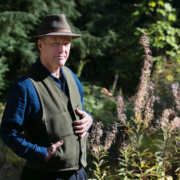


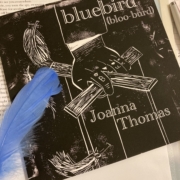
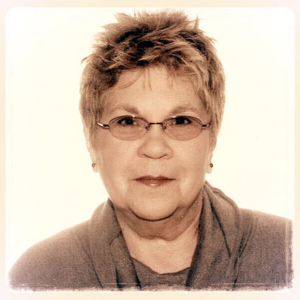 constraint which requires that a poet not use a certain letter of the alphabet. Using words starting with “B” as the title of each poem, the poems themselves, written as lyrical, lovely dictionary entries, exclude it.
constraint which requires that a poet not use a certain letter of the alphabet. Using words starting with “B” as the title of each poem, the poems themselves, written as lyrical, lovely dictionary entries, exclude it.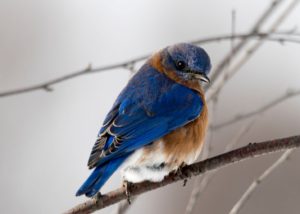
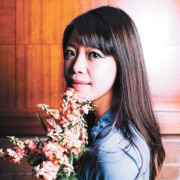
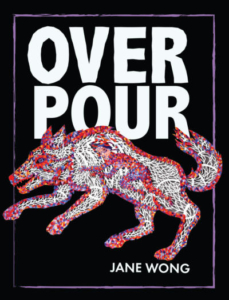 mean they are curious. They ask questions of the world” (back cover, and on Wong’s website). I’ve always liked poems that take risks, and I love unexpected catalogues of details. Jane Wong has a gift for this: “Two arms crossed between two tables / My heart crossed between my eyes, out of focus / In January, I looked for winter underneath potted plants / But I found my brother instead” (from “And the Place Was Matter”). There is a story here, but like an abstract painting, the poems refuse to tell the story in an autobiographical, linear way. It’s haunting, haunted by a brother and mother, by ghosts in China. I’m intrigued with how Jane weaves what seems like the world I occupy (too) together with something far more surreal and surprising: “At twenty, I halved caution / and called it Jane” (from “Twenty-four”). I often imagine discussing a poem with a class, and I can’t even imagine what my freshman and sophomore college students would have said about this. It defies explanation, invites an explosion of imagination.
mean they are curious. They ask questions of the world” (back cover, and on Wong’s website). I’ve always liked poems that take risks, and I love unexpected catalogues of details. Jane Wong has a gift for this: “Two arms crossed between two tables / My heart crossed between my eyes, out of focus / In January, I looked for winter underneath potted plants / But I found my brother instead” (from “And the Place Was Matter”). There is a story here, but like an abstract painting, the poems refuse to tell the story in an autobiographical, linear way. It’s haunting, haunted by a brother and mother, by ghosts in China. I’m intrigued with how Jane weaves what seems like the world I occupy (too) together with something far more surreal and surprising: “At twenty, I halved caution / and called it Jane” (from “Twenty-four”). I often imagine discussing a poem with a class, and I can’t even imagine what my freshman and sophomore college students would have said about this. It defies explanation, invites an explosion of imagination.